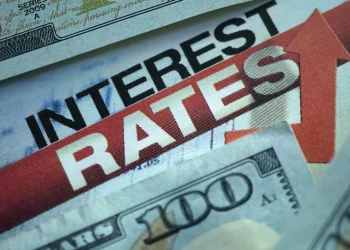When considering investing in the stock market some factors can affect your investment negatively. Inflation impacts the stock market. This makes it important to understand the relationship between inflation and stock performance. There are many different approaches you can take when dealing with inflation. Here are the main concepts you must know about inflation and its effects on the stock market.
This article will discuss the following topics:
- What is Inflation?
- Inflation and Stock Returns
- How Low Inflation Impacts the Stock Market
- How High Inflation Impacts the Stock Market
- How to Hedge Against Inflation
What is Inflation?
The rate at which cash’s ability to buy things depreciates over time is measured by inflation. Cash serves as an instrument of value, a means of trade, and a unit of account. Cash’s ability to buy things is entirely dependent on price levels as a store of value. Each unit of currency loses value over time as prices rise.
People frequently prefer to hold wealth in other assets like stocks, bonds, and real estate instead of only having cash as a store of value. But before the value they contain can be exchanged for other products and services, these assets typically need to be turned into cash.
It is simple to see how inflation has a negative impact. For individuals on fixed incomes, the loss of real income is particularly noticeable. Income in this case is calculated as a collection of goods and services rather than a nominal currency amount. Inflation ultimately works to reduce this amount of wealth until wages grow since people need to hold some wealth in cash for transactions and unseen expenses.
On the plus side, steady inflation rates are associated with decreased unemployment rates (this may be because anticipated rising prices encourage corporate investment or because consumer demand has increased).
In addition, many economists believe that for monetary policy to be effective, there must be little inflation (between 1% and 3%) in the economy. Finally, while retaining loans with fixed interest rates, borrowers stand to gain from inflation because higher inflation lowers the real cost of borrowing.
Inflation and Stock Returns
Investors might gain some insight by looking at historical return data from both high and low inflation periods. Much research has examined how inflation affects stock returns. Unfortunately, inconsistent findings have frequently arisen from the investigations. However, the majority of academics have discovered a general correlation between higher inflation and lower market prices.
This has also been seen in emerging markets, where stock market volatility is higher than in developed ones. According to research conducted since the 1930s at Georgia State University, periods of excessive inflation are when practically every nation has experienced its worst real returns.
The difference between supposed and real returns is inflation. The data indicate that the highest real returns happen when inflation is between 2% and 3% when looking at S&P 500 returns by decade and accounting for inflation.
A U.S. macroeconomic environment with wider challenges that have diverse effects on stocks is typically indicated by inflation that is either greater than or less than this range. The unpredictability of returns that inflation produces and knowing how to invest in such an environment may be more significant than the actual gains.
How Low Inflation Impacts the Stock Market

The demand for shares increases as companies report high revenues since reduced inflation is linked to lower interest rates and more spending, which causes share prices to rise. Lower inflation is positive for stocks that pay out smaller but dependable dividends. This is because the real interest earned on each payment is higher the more low the rate of inflation.
For instance, real interest is 2% if the dividend is 5% and inflation is 3%. However, real interest is 4% if inflation is 1%. The same is true for equities with higher levels of risk; both may see an increase in demand and consequently, in price.
Low Inflation and Interest
A rise in short-term interest rates, sometimes known as “tightening of monetary policy,” is a key component of inflation policy. Businesses and consumers spend less on investments as a result of the increased borrowing costs, and those who have extra cash choose to invest it in assets that yield interest rather than cash that loses value over time.
If the monetary authority is operating correctly and has earned the public’s trust and approval, inflation goes down along with real economic activity.
On the other hand, low inflation may result in declining interest rates, which encourages investment spending. In the business cycle, growth is closely related to both a lower interest rate and reduced inflation.
The consequence is very clear: as people and businesses spend cash, the overall expansion of the economy should produce strong returns on equity, whether in the form of dividends or rising share prices.
Low Inflation and Bonds
Reducing inflation is also beneficial for bonds. Investors anticipate a higher yield to maturity as a result of inflation. Which then decreases the appeal of bond coupon payments. As a result of this, the debt levels of those issuing bonds rise, which reduces the amount of investment spending backed by debt.
To be clear, the cash flows made by the bond issuer to the bondholder at predetermined times are known as coupon payments. Bond prices can change as they are purchased and sold on open markets, based on several variables, among them supply and demand.
The yield to maturity is the percentage of the bond’s price that is equal to the present value of the bond’s future coupon payments. Bonds with lower prices have higher yields to maturity for a certain coupon payment. For the bond issuer, a high yield to maturity means a high cost of debt. Because businesses borrow cash to finance their investments, higher borrowing costs will result in fewer new bonds being offered to the market.
When inflation is low, bond buyers are more prepared to pay a higher price to guarantee the bond’s future cash flows since the danger of inflation is reduced. Bonds and equities have a close link, and the two frequently engage in heated competition for investor capital.
How High Inflation Impacts the Stock Market

Long-term, ownership of stock might serve as a hedge against inflation for investors since inflation impacts the stock market. This implies that a stock or share portfolio’s financial value can increase over an inflationary period, keeping the ‘real’ wealth it stores constantly despite rising prices.
When inflation is caused by increasing input costs (sometimes referred to as cost-push inflation), for instance, revenues may rise and typical return rates may return once firms have had enough time to adjust to the inflationary pressures and raise their prices.
Following a period of price adjustment, the increased input costs are simply passed through to consumers. The economic reasoning behind this would also suggest that this is likely more realistic for a well-diversified portfolio as opposed to a single stock that carries its own unique risk.
The Short-Term Effects of Inflation
Analysts believe that the short-term change is less favorable and that there is frequently an inverse correlation between equities prices and inflation, meaning that stock values fall as inflation rises or rise as inflation declines. Inflation may have a short-term negative influence on stock values due to a variety of factors. Here are some of those factors:
- The pressure on share prices is being caused by declining short-term income and earnings.
- a widespread slowdown in the economy that creates a macroeconomic environment that is unfavorable to the stock market and overall consumer spending
- A monetary policy reaction that raises short-term interest rates and prompts investors to switch from higher-priced bonds to cheaper equities
- The possibility of reduced or even negative real returns reduces investor demand for a stock. To guarantee a positive real return in inflationary situations, investors must generate better returns from their stock portfolio. If your portfolio gains 4% annually, for instance, it equates to a real return of 3% while inflation is 1%. However, if inflation were to reach 5%, your real return would be negative.
Stocks to be Aware of During High Inflation
During periods of rising inflation, value equities have performed better than growth and income stocks in the short term. Nevertheless, how you react to a higher inflation rate depends on whether you are thinking long-term or short-term.
As a long-term investor, you may protect the value of your cash by letting your portfolio gradually pass on rising expenses to customers, acting as an inflation hedge. There is evidence to show that rising inflation also tends to enhance stock market volatility, which may present short-term traders with opportunities to purchase or sell equities.
High Inflation and Value Stocks
According to research, investors prefer value equities when inflation is high. Value stocks are securities that are more valuable fundamentally than they are currently being traded for. They generally consist of shares of established, mature businesses with significant current free cash flows that could become lessening in the future. Shares linked to higher current cash flows are worth more in times of high inflation than growth equities linked to longer-term success.
Large existing cash flows will be much less decreased than cash flows of equivalent quantities in the future when valuing stock in terms of discounting future cash flows. For instance, $100 reduced at 5% over a year is worth $95.24 now, but the same flow over five years is only worth $78.35.
High Inflation and Growth Stocks
According to studies, growth stock prices fall during periods of higher inflation. Growth stocks are securities that have the potential to beat the market in the future even when they do not currently display substantial free cash flows or dividend payouts.
Since they are long-term investments, valuable returns can only be anticipated once they have had time to develop and frequently deliver better-than-average results.
Given that the anticipated cash flows are still some time away when growth stocks are discounted to a present value, the compounding discount rate will have a negative effect on the current share price.
High Inflation and Income Stocks
Income stocks’ prices will drop until the dividends increase to keep up with inflation since they give consistent, dependable payouts, which may not do so in the short term.
When inflation rises, international corporations may also see a decline in share values. If a company raises prices too much, it faces the danger of losing market share to foreign competitors who can maintain price stability.
How to Hedge Against Inflation
Hedging against inflation is the process of transferring capital into assets that will resist depreciation or, in the best circumstance, actually appreciate at a rate higher than inflation, as inflation reduces the worth housed in each unit of cash. The following are some things to consider when hedging against inflation:
-If businesses can raise their costs in response to increasing costs of inputs or migrate to other sources, a well-diversified stock portfolio may eventually serve as a hedge. If this happens, revenues, free cash flows, and dividends will all increase, ensuring that real income is restored. Share prices may rise as a result of the return of normal real flows and dividends after accounting for inflation.
-Gold is frequently viewed as a safe sanctuary for wealth during inflationary periods, and commodities represent a traditional inflation hedge. However, before assuming that commodities will outperform other potential assets, several factors need to be taken into account. Exchange-traded funds (ETFs), which are combinations of many companies, are a fantastic method to get exposure to the commodities markets.
-Due to the significant dependence of real estate values and rental rates on inflation, real estate investment trusts (REITs) are a potential hedge alternative. According to analysts, real estate returns have consistently shown to be resistant to increases in consumer price levels. Real estate returns have been comparable to stock market returns but with less cyclicality and volatility. A REIT is a collection of real estate assets that pays trust shareholders dividends from income-producing real estate.
-If market demand for certain equities declines while inflation increases, shorting stock could serve as a hedge in the short run. A lower current value of dividends and future free cash flows could result in growth equities and income stocks losing value.
Conclusion
Investors take action based on their expectations and attempt to predict how inflation impacts the stock market. One of the variables that could impact a portfolio is inflation. Since a company’s sales and earnings should eventually increase in line with inflation after a time of adjustment, stocks should theoretically offer some protection against inflation.
However, the various effects of inflation on equities tend to raise the volatility and risk premium of the equity market. Low returns on stocks have historically been connected with high inflation. Value stocks typically outperform growth stocks in times of high inflation, and growth stocks typically outperform value stocks in times of low inflation.













